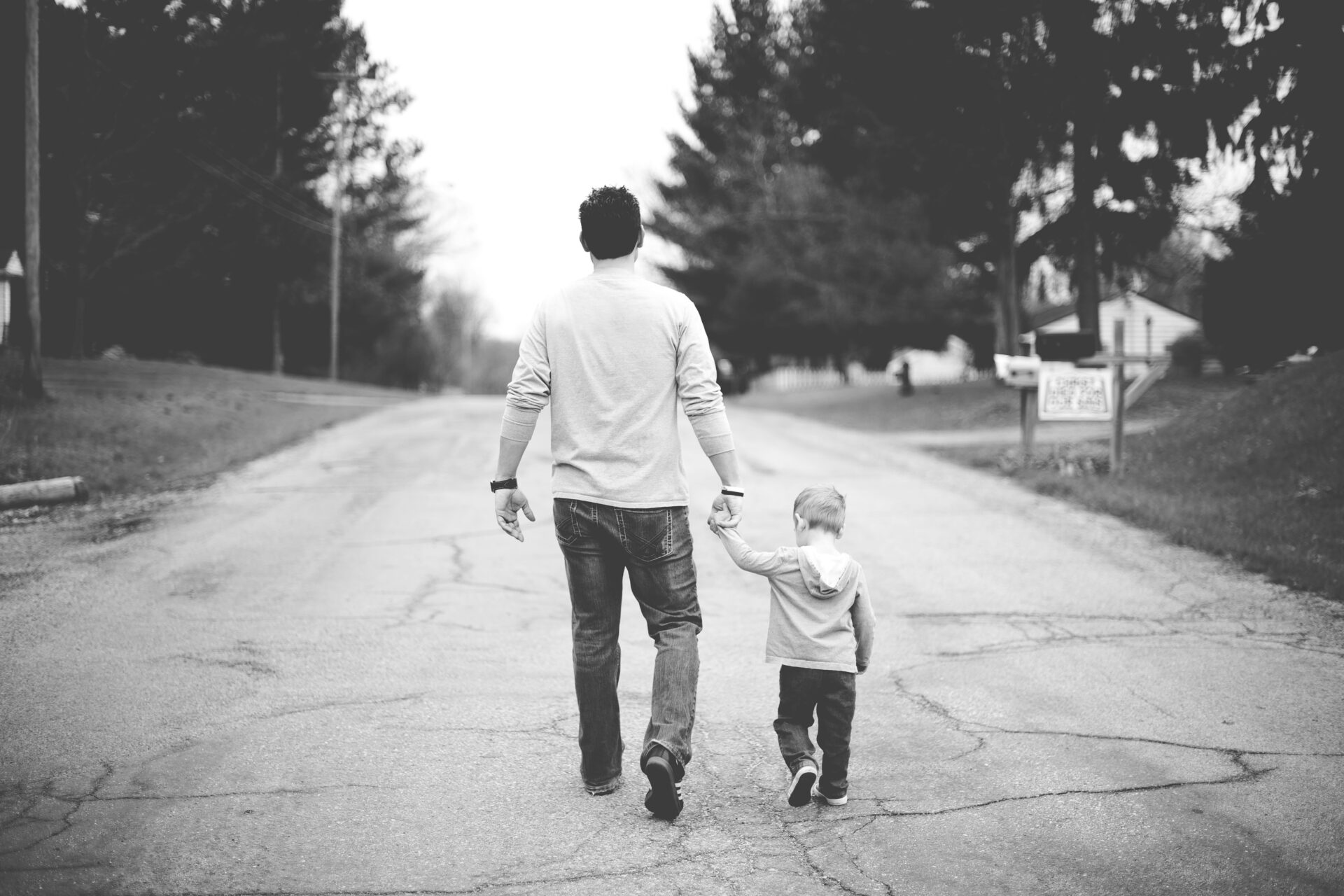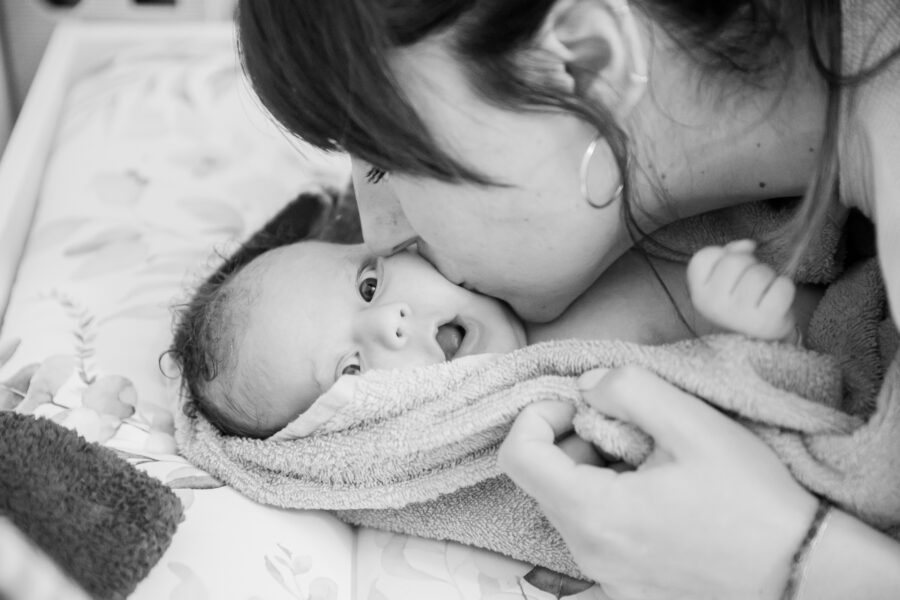You are a parent. You are an individual, a career person, a friend, a sister or brother and someone’s child. You are also a homemaker, an avid reader, an athlete, or a movie enthusiast.
We have all these different roles that define our lifestyle and, most importantly, our personalities. Becoming a parent doesn’t defy the rest of the roles we have assigned to ourselves. Yet, it is the one who has the power to generate more guilt about our skills, life choices, and values.
I recently had a severe accident in my right hand that had a significant impact on my daily life. Suddenly, I could not execute everyday tasks, such as putting my hair up in a ponytail, doing my laces, cooking or cleaning. Most importantly, I was unable to care for my toddler. I couldn’t lift him up, change his nappy or bathe him.
And while I received support from my family, I felt that I was failing as a parent. What mother cannot lift their child up against their cries for a hug? So, the guilt trip started for me, despite my conscious attempts to avoid it. Indeed, being injured while working a full-time job and long hours didn’t ease my emotional discomfort around my parenting capacities.
Parental guilt is not just a fleeting feeling; it’s a pervasive issue that can significantly impact household dynamics. It’s important to recognize that guilt does not make us better parents. Instead, guilt is an obstacle to becoming the parents our children need, improving ourselves, and contributing positively to our community.
When parents operate from a place of guilt, they unintentionally teach their children that love and respect are conditional, which implies that only when we do things correctly or behave perfectly are we worthy of love. Subsequently, mistakes or poor choices might render us undeserving of affection and esteem. This is a harmful lesson for children, who will inevitably make mistakes as they grow and learn.
Instead of allowing guilt to guide parenting decisions, it’s more productive to focus on understanding, compassion, and forgiveness. These values will not only help parents feel better about their parenting journey but will also teach children to be resilient, understanding, and kind in the face of mistakes. Engaging in open dialogues about errors and the lessons learned from them can foster a more positive environment while encouraging a healthier perspective on self-improvement and growth.
Thus, instead of succumbing to the cycle of guilt, parents should aim to model behaviours that show that everyone is worthy of love regardless of their imperfections. This approach will help build stronger relationships in the family, paving the way for children to develop into well-adjusted adults.
But how is guilt-free parenting translated into daily life? Is this even possible, or is it an utter utopia? As demanding as it may sound- even unimaginable at trying times- parenting without guilt is possible; if anything, it is necessary for the growth of the child and the whole family.
Tips for a guilt-free parenting
- Embrace your mistakes- renounce perfectionism
Embrace your mistakes and discuss them with your child while teaching them resourcefulness and resilience. Refrain from using the word perfect to describe people, behaviours, or situations. A wrong choice doesn’t define a parent’s personality, let alone their love for their child, and this is a lesson worth teaching the younger generation. Besides, there is no reason to cry over spilt milk.
- Forget about work-life balance.
It took me years of fruitless pursuit to realize that there is no such thing as balance, neither between work and personal life nor in a partnership. And that is okay because this is how real life is: imbalanced. It essentially comes down to choices about work and personal life, which defer every time according to current conditions, moods and needs.
- Intentional choices
I returned to work full-time when my son was only eighteen months old. It was my informed decision to take up a new role that required me to work long days. Returning to work after my maternity leave wasn’t an emotionally easy choice, but it was the right thing to do for me because it was an intentional decision. And while life with a child is never easy, I have entirely accepted my choice while focusing on creating a fulfilling life with and for my family, given the current conditions each time. Intention wins over guilt.
- Quality over quantity
If you read this blog often, then you know the importance I place on quality over quantity. I strive to apply this principle to various aspects of my life, including my time with my child. Weekly, this time is limited to only a few hours; hence, instead of giving in to the guilt trip, I choose to focus on the quality of our time together. It may not be much, but it is fulfilling, and I try to make our time together count. The truth is that it can be challenging to offer my full attention to my child due to the demands of daily life, but it is my goal. As long as I keep myself aware of this goal and try to achieve it, there is no room for guilt and remorse.
- Inclusion in daily life
There are many ways to offer your child attention without being stuck in a playroom or playground. Things must be done even when your time is limited and, therefore, precious. A great way to fulfil daily chores and tasks while spending time with your child is by including them in a typical daily life. After a long day at work, I still need to cook or do laundry. Instead of asking my son to wait in his playroom for me, I invite him to help me with little tasks, to which I attach a fun element.
I started practising this principle in the last few years but still need help sticking with it. Saying no often is a way of living without remorse and guilt about your choices. A no to something is a yes to something else we value more. When I became a mother, I felt compelled to fill in every free moment during the baby’s naps with chores because I felt guilty about resting or reading my book. Little did I realize back then that saying no to the relentless tidying up would enable me to say yes to my self-care and mental health. And while saying no more often might be a challenge, it eventually allows us to identify what really matters to us and the purpose it serves.
- You are a parent, not a clown.
You do not have to provide twenty-four-seven entertainment for your child; you are a parent, not a clown. Your child will have to learn how to entertain themselves and how to deal with the frustration of being bored while understanding your role as their parent and not their entertainer. It is okay not to spend every single minute of your free time with your child or have to provide a full fun activities program to them. And it is okay if they feel angry, sad or frustrated with you. Parents also have rights.
Guilt-free parenting means embracing the idea that you’re doing the best you can with what you know and have. It’s about acknowledging your mistakes compassionately and using them as teachable moments to show your child how to learn, reflect, and bounce back with grace. After all, parenting is a journey, not just for your child, but for you too.



